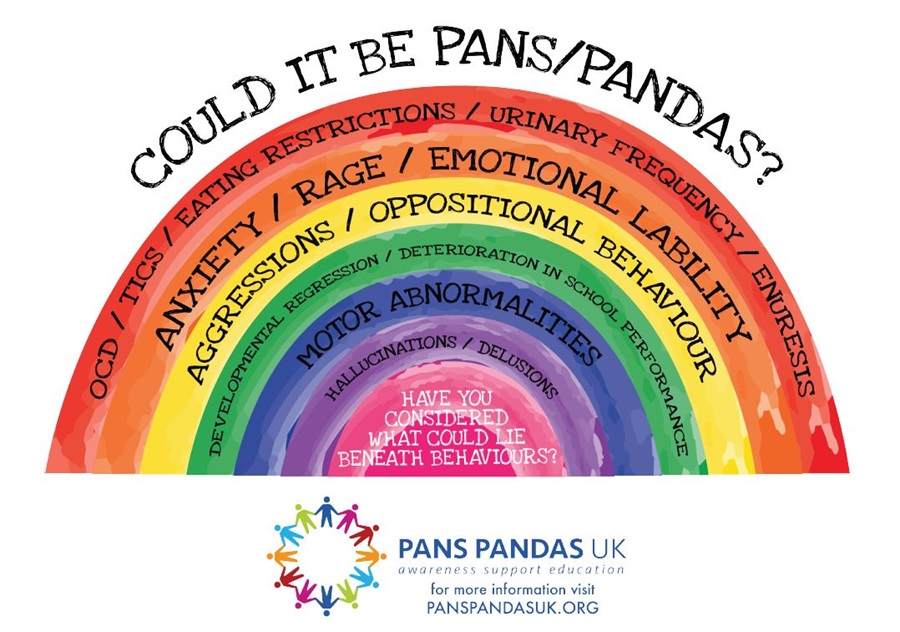Paediatric Autoimmune Neuropsychiatric Disorders Associated with Streptococcal Infections (PANDAS) and Paediatric Acute-onset Neuropsychiatric Syndrome (PANS) are two related paediatric disorders that can have a profound impact on a child's life.
PANS and PANDAS are thought to be autoimmune disorders that occur when the body's immune system mistakenly attacks the brain, leading to inflammation and a wide range of neuropsychiatric symptoms. These symptoms can include sudden onset of obsessive-compulsive disorder (OCD), tics, restricted food intake, developmental regression, anxiety, depression, irritability, and even hallucinations and delusions.
One of the most distinctive features of PANS and PANDAS is that symptoms tend to come on suddenly, often following an infection, such as streptococcal infections, influenza, or chickenpox. Children who previously were healthy and developmentally on track may suddenly start exhibiting signs of OCD or other neuropsychiatric symptoms. Parents/carers may describe a child who has changed overnight, who can no longer attend school, and who is suddenly plagued by intrusive thoughts and high levels of anxiety. They may perhaps think their child has a urinary tract infection as they now spend hours each day on the toilet. They are likely to be extremely worried about the multiple unexplained symptoms their previously happy and healthy child has developed, seemingly out of the blue.
Unfortunately, due to low levels of awareness, PANS and PANDAS are often misdiagnosed or not diagnosed at all, which can lead to a great deal of suffering for both the child and their family. Treatment for PANS and PANDAS typically involves a combination of antibiotics to treat underlying infections, immunomodulatory therapies to reduce inflammation, and behavioural and cognitive therapies to help manage symptoms.
If you were presented with a young person with any of these symptoms, it would be understandable if you thought that they may be experiencing a mental illness, or perhaps that they are autistic. This would then possibly lead to a referral to CAMHS (Child and Adolescent Mental Health Services) where there can be a long waiting list, or treatments with anti-psychotic medication that can have significant side effects. It is not uncommon for young people with these conditions that it is overlooked that their symptoms are in response to an infection, and these symptoms could disappear with a treatment of anti-biotics.
I am pleased to be representing the Royal College of Nursing on a PANS PANDAS Working Group and the RCN is a co-signatory to a position statement we have helped PANS PANDAS UK to release. Read this position statement.
A key ask that we are making in this position statement is that when young people are presenting with these symptoms that a full physical investigation is undertaken so as physical health causes can be ruled out. It is hoped that we can raise awareness of PANS and PANDAS so as this is automatically considered and young people can promptly access the support they need.
Research into PANS and PANDAS is ongoing, and much remains unknown about these disorders. But with increased awareness and understanding, we can help ensure that children with PANS and PANDAS receive the care and support they need to live healthy, happy lives.



 Share on LinkedIn
Share on LinkedIn





